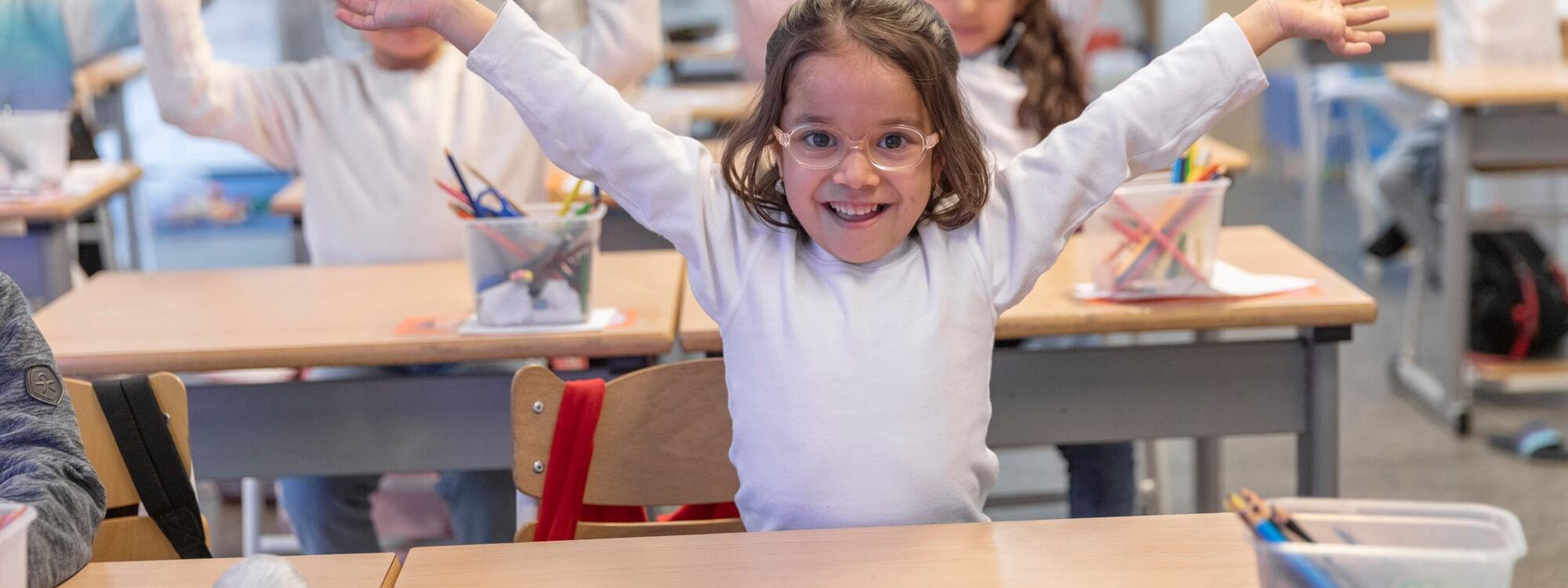- Home
- Learning & Academics
- Primary School
- Primary Years Programme (PYP)
Primary Years Programme (PYP)
Uppsala International School is an IB Candidate School which delivers the IB Primary Years Programme (PYP). The PYP provides a holistic approach to curriculum design and places the child at the centre of the learning process. The PYP framework shows a series of concentric circles representing the essential elements within the PYP curriculum. These elements interconnect to meet the personal, social, emotional, and physical needs of the whole child.
Explore the PYP
The Primary Years Programme is the first of four IB programmes of education. It provides a curriculum framework of essential elements — the knowledge, concepts, skills, learning dispositions, and action that young students need to equip them for successful lives, both now and in the future and significant for learners in the 3–12 age range.
The six subject areas identified within the IB Primary Years Programme:
- Language
- Mathematics
- Science
- Social Studies
- Arts
- Physical, Social and Personal Education
What are the six Transdisciplinary Themes?
Who we are:
An inquiry into the nature of the self; beliefs and values; personal, physical, mental, social and spiritual health; human relationships including families, friends, communities, and cultures; rights and responsibilities; and what it means to be human.
Where we are in place and time:
An inquiry into orientation in place and time; personal histories; homes and journeys; the discoveries, explorations and migrations of humankind; and the relationships between and the interconnectedness of individuals and civilizations, from local and global perspectives.
How we express ourselves:
An inquiry into the ways in which we discover and express ideas, feelings, nature, culture, beliefs and values; the ways in which we reflect on, extend and enjoy our creativity; our appreciation of the aesthetic.
How the world works:
An inquiry into the natural world and its laws; the interaction between the natural world (physical and biological) and human societies; how humans use their understanding of scientific principles; and the impact of scientific and technological advances on society and on the environment.
How we organise ourselves:
An inquiry into the interconnectedness of human-made systems and communities; the structure and function of organisations; societal decision-making; economic activities and their impact on humankind and the environment.
Sharing the planet:
An inquiry into rights and responsibilities in the struggle to share finite resources with other people and with other living things; communities and the relationships within and between them; access to equal opportunities; peace and conflict resolution.
PYP FAQs
The Primary Years Programme is the first of four IB programmes of education. It provides the Academy with a curriculum framework of essential elements — the knowledge, concepts, skills, learning dispositions, and action that young students need to equip them for successful lives, both now and in the future and significant for learners in the 3–12 age range.
- IB World Schools (the only schools authorised to offer IB programmes) are subject to a strict accreditation process monitored by the IB, ensuring that academies provide a high-quality education
- IB teaching methods and curriculums are research- based and draw from the best educational practices from systems around the world
- IB teachers are required to participate in many professional development opportunities to continually promote their awareness of current educational practices and new thinking
- IB students develop a sense of the world around them and their responsibility to it. (See “What is an IB Education?”)
- IB programmes are recognised internationally and ease the educational transitions of mobile students so that their education is not adversely affected if their families relocate
All PYP teachers receive professional development in IB’s approaches to teaching and learning from certified IB workshop leaders. This is a requirement for IB World Schools implementing the PYP.
- Visit the IB website at www.ibo.org
- Speak with your child’s PYP Form Tutor
How the PYP Helps Students
The PYP is able to develop students to possess the skills below. Click here to learn more.
